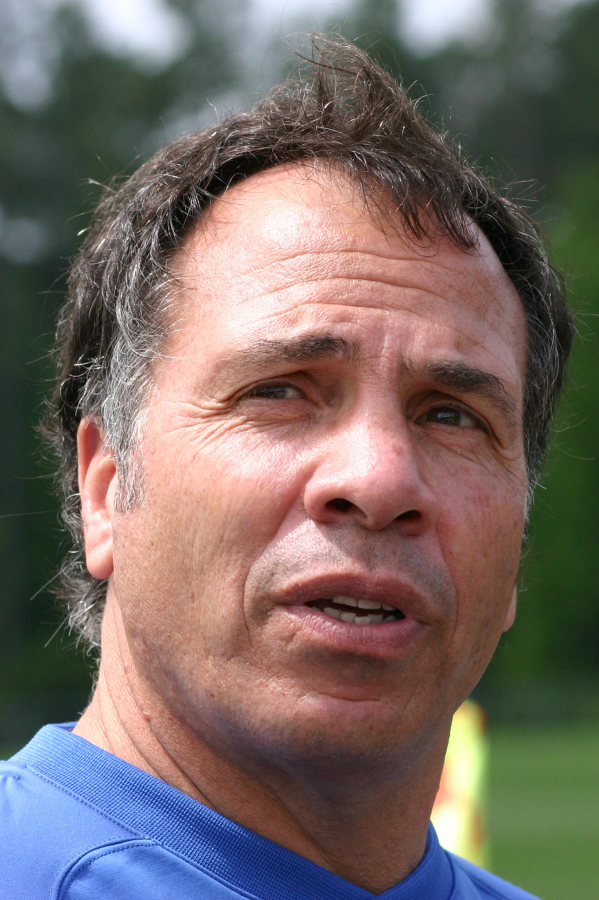The Confederation of North, Central American and Caribbean Association Football (CONCACAF) soccer competitions are typically dominated by two teams: Mexico and the U.S. Mexico is ranked 16 in the latest International Federation of Association Football (FIFA) world rankings, while the U.S. was placed at 27. Costa Rica is ranked 22, ahead of the U.S., but their recent emergence in CONCACAF has not shaken the dominance the U.S. and Mexico have enjoyed over this region.
What has made the Mexican and U.S. teams soccer giants in CONCACAF is their absurd record of regional titles. Since the regional tournament, the Gold Cup, was created in 1991, the U.S. and Mexico have won all but one of 14 titles. Given how weak CONCACAF teams are, the U.S. and Mexico are essentially shoo-ins for World Cup qualification. Mexico did their part and qualified with three games to spare, but the U.S. struggled throughout the qualifying campaign and headed into the last day of qualifiers fighting for a World Cup berth.
Still, the odds were overwhelmingly in the U.S.’ favor since they were facing Trinidad and Tobago. Trinidad and Tobago were coming in with a six-game losing streak and only one victory in nine games. And if facing the weakest team in the group was not fortunate enough, the U.S. only needed a tie to grab CONCACAF’s last automatic World Cup spot. To add to the ludicrous scenario of the U.S. missing the World Cup, both Panama and Honduras had to win their respective games as underdogs facing the top two teams in the group. As fictitious as these scenarios sounded at the beginning of the last day gameplay, by the end of the night, they all came to fruition. The U.S. was defeated 2-1, and any hopes of qualifying faded when Panama and Honduras obtained dramatic victories.
The U.S. is out of the World Cup for the first time since 1986. The next morning, talk shows were placing blame at all levels of the U.S. Soccer Federation: from the national team players to president Senil Gulati to our youth system. Calls for a head-to-toe reform were being made, but the U.S. team had no excuse for failing to even draw with Trinidad and Tobago. The U.S. had multiple chances of tying the game after Christian Pulisic trimmed Trinidad and Tobago’s lead to just one goal, but our players were just not good enough to put away those chances. And that’s what this qualifying campaign boils down to: our players are not good enough. In a country that demolishes Olympic competition and houses the world’s best leagues in a handful of sports, we can’t find eleven top-quality soccer players.
Our youth pay-to-play system has severely stunted the development of soccer players in this country. Meanwhile, in Europe, it’s common practice to have soccer academies integrated with schools to develop young soccer protégés. It’s like the MLB minor league’s farm systems, but at a younger age. Then, there are countries like Brazil where kids growing up in poverty see soccer as the way out, much like disadvantaged kids follow a football or basketball path for a better life in the U.S.
If the U.S. wishes to compete at a global level, the federation must take a hard look at the failings of its youth system to produce top-quality players. Few American kids grow up idolizing American players; it’s always the Messi’s and Ronaldo’s of the world that get all the notice. I played goalie in youth soccer; never once did I look up to American goalies like Brad Friedel or Tim Howard. Perhaps young stars like Christian Pulisic and Bobby Wood can inspire more kids to follow soccer.
Missing the World Cup is catastrophic for the U.S., since most people only tune in every four years to watch their national team. The last World Cup was in 2014, and the next one the U.S. can participate in won’t be until 2022. That’s eight years without World Cup soccer. Kids will have entire childhoods without seeing an American team at the greatest soccer stage. Bars across the country won’t come alive for the games and our country won’t have a team to get behind. I was looking forward to the excitement of enjoying my first World Cup as someone over 21, but it won’t be spent cheering for the U.S.
U.S. Men’s National Team Failed Our Nation
By Bryan Peguero
|
October 18, 2017

